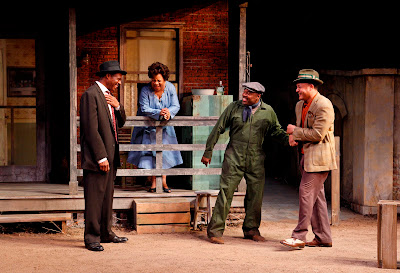Last night, I spent the evening in an old pub nestled deep in the Irish countryside, well off the beaten path. There was a biting wind that was howling outside and seeping into the cracks of the old building. Inside, the coal-burning stove gave the room a welcoming glow and provided just enough heat. In front of it was an old rug so worn that its pattern was unrecognizable, and a chair with tattered upholstery. The stools and chairs in the pub were all mismatched. The bar itself was covered in knick-knacks and had an old broken TV. You could tell the walls housed a lot of memories and conversations and had seen a lot of laughter, definitely some brawls, and maybe some tears, too.
Last night, I spent the evening with four Irishmen and an Irishwoman—Jack, Brendan, Jim, Finbar, and Valerie. Brendan, the bartender, was quiet but polite, and a good listener. Jack, a mechanic, was downing pints impressively fast, and although he seemed jovial enough, I wouldn’t want to cross him. Jim was the most quiet of everyone, but as the night progressed, he opened up a bit. Finbar, in a white suit and pink dress shirt, stood apart from his simply-clothed friends, and his slickness made him a little more suspect than the rest of the lot. And Valerie…Valerie was a plainly pretty woman who just moved from Dublin to rent a house in the country, and the men took it upon themselves to put on airs and impress her with their ales and anecdotes.
Last night, profanity and fantastical ghost stories flowed freely, and as the evening went on, the men’s tales grew more exaggerated…and scary. Ireland is renowned for its ghost tales and folklore, and these men, like any respectable Irishmen, knew how to tell a story (the alcohol undoubtedly encouraged and inspired their dramatics). With their stories about fairies, ghosts, and unexplainable happenings, they each tried to top each other's tales, entertaining and frightening each other. I questioned their superstitions and honesty, not knowing what to believe. But it was quiet, unassuming Valerie, whose story about why she really left Dublin--a true ghost story--ended the unsettling evening and allowed the men to let their guard down.
Last night, I saw a play called The Weir at South Coast Repertory, and felt like I was in a pub experiencing an evening with real people. Never once did I not feel like I was really there with them, in the dark Irish countryside. And never did I fully believe any of their drunken ghost stories…until the end of the play.
Last night, I spent the evening with four Irishmen and an Irishwoman—Jack, Brendan, Jim, Finbar, and Valerie. Brendan, the bartender, was quiet but polite, and a good listener. Jack, a mechanic, was downing pints impressively fast, and although he seemed jovial enough, I wouldn’t want to cross him. Jim was the most quiet of everyone, but as the night progressed, he opened up a bit. Finbar, in a white suit and pink dress shirt, stood apart from his simply-clothed friends, and his slickness made him a little more suspect than the rest of the lot. And Valerie…Valerie was a plainly pretty woman who just moved from Dublin to rent a house in the country, and the men took it upon themselves to put on airs and impress her with their ales and anecdotes.
Last night, profanity and fantastical ghost stories flowed freely, and as the evening went on, the men’s tales grew more exaggerated…and scary. Ireland is renowned for its ghost tales and folklore, and these men, like any respectable Irishmen, knew how to tell a story (the alcohol undoubtedly encouraged and inspired their dramatics). With their stories about fairies, ghosts, and unexplainable happenings, they each tried to top each other's tales, entertaining and frightening each other. I questioned their superstitions and honesty, not knowing what to believe. But it was quiet, unassuming Valerie, whose story about why she really left Dublin--a true ghost story--ended the unsettling evening and allowed the men to let their guard down.
Last night, I saw a play called The Weir at South Coast Repertory, and felt like I was in a pub experiencing an evening with real people. Never once did I not feel like I was really there with them, in the dark Irish countryside. And never did I fully believe any of their drunken ghost stories…until the end of the play.
[Daniel Reichert, Richard Doyle, Tony Ward, Kirsten Potter, and James Lancaster
in The Weir by Conor McPherson. Photo by Henry DiRocco/SCR]
The Weir runs through April 3rd. Get your tickets here, if you dare...



































